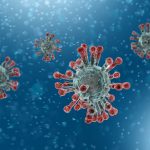 Specialists from Public Health England (PHE) are working with East Sussex County Council and NHS colleagues following a confirmed case of Coronavirus (COVID-19).
Specialists from Public Health England (PHE) are working with East Sussex County Council and NHS colleagues following a confirmed case of Coronavirus (COVID-19).
The case has recently returned home from a cruise.
Alison Barnett, Centre Director for Public Health England South East, said: “Public Health England is contacting people who had close contact with the latest confirmed case of COVID-19. This case is a resident of East Sussex. Close contacts will be given health advice about symptoms and emergency contact details to use if they become unwell in the 14 days after contact with the confirmed case.
“This tried and tested method will ensure we are able to minimise any risk to them and the wider public.”
Darrell Gale, Director of Public Health for East Sussex, said: “I’d like to reassure people that we are working with health colleagues to do everything we can to restrict and slow the spread of the virus and ensure the people of this county are protected.
“If you have not been contacted by Public Health England as a close contact of the confirmed case you do not need to take any action at this time.”
Health and local authorities are appealing for people to follow national Government guidance to prevent further spread of the illness and limit the numbers affected.
This guidance includes taking basic hygiene precautions as the best way of significantly reducing the chances of spreading any virus: sneeze or cough into a tissue, bin it, wash your hands frequently and don’t touch your face unless you’ve just washed your hands.
Current evidence indicates that most cases appear to be mild, with patients experiencing flu-like symptoms. Older residents or those with weakened immune systems or long-term conditions may experience more severe symptoms.
Mr Gale added: “These are the same simple steps we all should be taking to avoid other illnesses such as flu which is also prevalent during the winter and it is important that residents help protect themselves and others.
“If you have symptoms associated with the coronavirus, either a high temperature or a new continuous cough, you should not go to A&E or your doctor but self-isolate yourself at home. You do not need to ring 111 to let them know. Contact the NHS online service if you feel you cannot cope at home, or if your condition gets worse or if your symptoms have not improved after seven days. Only ring NHS 111 if you cannot use the online service.”
Self-isolation means you should:
- stay at home
- not go to work, school or public places
- not use public transport or taxis
- ask friends, family members or delivery services to do errands for you
- try to avoid visitors to your home – it’s OK for friends, family or delivery drivers to drop off food
You may need to do this for up to 14 days to help reduce the possible spread of infection. For more information on the symptoms and steps to take, go to www.nhs.uk/coronavirus
For the latest advice on travellers returning from affected areas, plus guidance to schools and care homes, visit www.gov.uk/coronavirus
Public Health England (PHE) exists to protect and improve the nation’s health and wellbeing, and reduce health inequalities.
PHE is an executive agency, sponsored by the Department of Health and Social Care.
PHE has published a Q&A blog to answer many common questions about coronavirus https://publichealthmatters.blog.gov.uk/2020/01/23/wuhan-novel-coronavirus-what-you-need-to-know/


